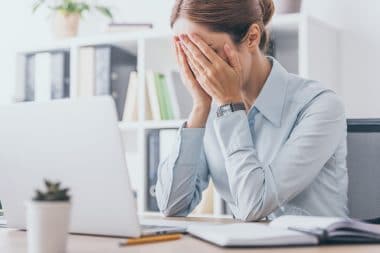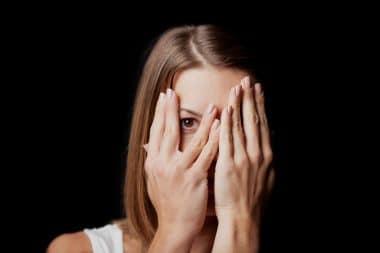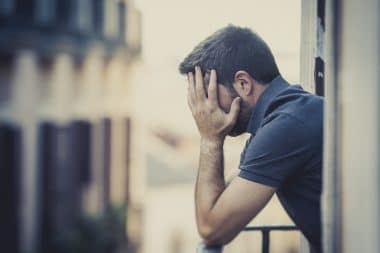Social anxiety disorder is the most common mental disorder. Â It affects millions of people. Social anxiety disorder is when a person experiences stress from social situations that is so overwhelming it cannot be dealt with. Â The stress can come from talking in public, to walking into a crowded room of strangers, to eating in front of people, or even using public bathrooms. Social anxiety affects people in different ways. Â And one person may be able to deal with normal conversations with a single person, but is unable to speak to a crowd. This disorder can make small talk and eye contact uncomfortable or even impossible for some people. Â
Social anxiety disorder can lead to complete avoidance of social contact.
Everyone can be affected by social anxiety disorder, adults and children. Â Children sometimes don’t develop the symptoms until age 13 but some social anxiety can be present at any age. Â Shy children can be more prone to developing social anxiety or if a child has been bullied or abused that may lead them to retreating away from social activities. Â Children may not respond to the anxiety the same way an adult would. They may lash out with a temper tantrum, or cry. The situations that can cause fear are different for children. Â It could be talking to an adult cause them anxiety, or the opposite talking to other kids.
There is not one reason why this happens, and each person who suffers from this disorder may not suffer exactly like someone else. Â There are a few basic fears that play a role. A fear of being judged by others, or being embarrassed or humiliated in front of a bunch of people. Â Other fears can consist of offending someone by saying the wrong thing, or just being the center of attention. One of the hardest parts may be asking for help.
There are some physical effects that social anxiety can have on someone. Â Â You might feel your heartbeat quicken, muscle tension, dizziness, stomach being upset or diarrhea, or even shortness of breath. Â The worry and stress may not happen until the situation is happening. If it is a planned event you may spend lots of time worrying about it for days or weeks upcoming to the event or situation. Â Other times you can spend time afterwards worrying about what happened or was said.
The important thing is to try and get help before the social anxiety starts to take a hold of your life and stops you from doing normal day to day activities. Â Such as going to work, school, attending parties or other social gatherings. Make sure you contact your doctor if you have started retreating away from social activities. Â
There isn’t much on what can be the root cause of social anxiety disorder.  Some of the things that may lead to it are inherited traits, brain structure, and environment.  People who have someone in their family that has social anxiety disorder are more prone to have it as well. There isn’t anything clear on whether these inherited traits are from genetics or just from picking up on social clues and learning from seen behaviour.  Which goes along with learning from your environment, that maybe you were embarrassed and not taught how to cope with the embarrassment which turns into anxiety, causing a person to then fear ever having the same situation happen again. There can be lots of reasons and causes to make someone’s anxiety flare up. Â
Social anxiety disorder can lead to some negative outcomes in a person’s life when left untreated; low self esteem, not being able to be assertive, substance abuse, poor social skills, isolation, and suicide. Â The way to prevent these things from occurring is to get help as early as possible. If there is any hint of social anxiety make sure you speak with a healthcare provider. When getting help keeping a journal may help in being able to keep track of your life. Â Things to stay away from for sure is substance abuse, make sure you aren’t abusing alcohol or drugs to get through situations or to make yourself stop worrying. Speaking with someone may help ease your anxiety or a psychologist or counselor may have some ideas on how to help you work through your anxiety. Â Give you some things to try, such as deep breathing or visualizing or ways to know when your anxiety is about to get out of hand and to calm yourself down. Your doctor may also suggest putting you on some medications. Antidepressants or beta blockers may be prescribed to help. Make sure you stick with whatever treatment that is given to you. Â Like most mental illnesses this doesn’t just go away. It will take time to overcome.
Make sure to speak with a healthcare professional before your Social anxiety gets the best of you.
Don't Let Social Anxiety Stop Your Fun! #HealthStatus
Key Points
- 1Social anxiety disorder is very common.
- 2There are many causes for social anxiety disorder.
- 3Help is available and successful for treating social anxiety.
Sources: Webmd.com mayoclinic.org








Reply